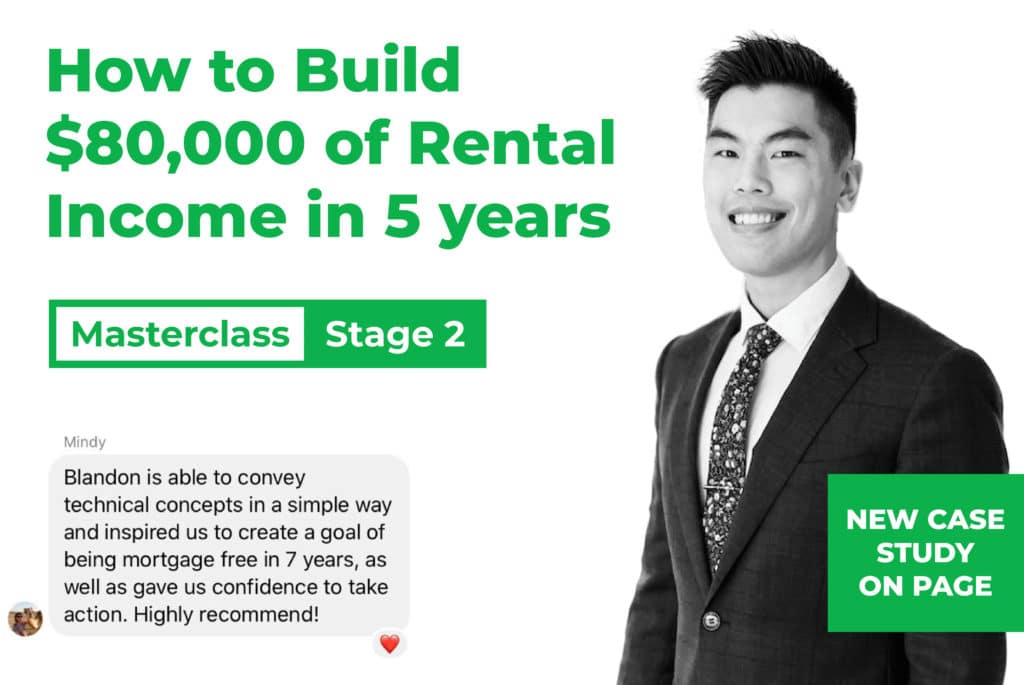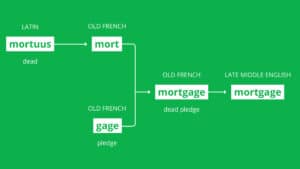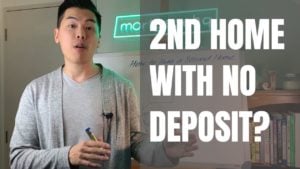Renovate Property like a Successful Investor
When you’re trying to create equity and cash flow from your current or potential properties, often the easiest way is to refresh some of the property’s character by fixing up rooms and appearances of the house. This could be updating the kitchen, bathroom, or bedrooms with new carpet, taps, benchtops, the options are endless. The key is appropriate and unemotional spending. Your budget needs to fall well below the end value you’re trying to build so you can maximise equity built while minimising your costs.
Inexperienced renovators often go over budget and those who do things themselves do not always accurately predict the time and effort required. Many successful property investors have stories that go something like this: ‘in the beginning, I tore up carpet, painted rooms, changed toilets etc and it took a long time and was hard work, it meant I could not focus on buying more property and I wish I just paid people to do it for me’. My guess is most people would prefer to try some things themselves which is fine as long as you’re not doing any structural changes that require consent.
Check with your mortgage adviser about funding renovations on your mortgage and about what quotes the banks will require. You might need valuations at some stage to help you either get the funding or realise the equity on paper.
With a relatively small expense of say $10,000, you can actually make a significant impact on the registered valuation of your properties. Some people have built over $50,000 of value from $10,000 of investment! Cosmetic improvements will impact rental yields – pushing them up, and it’s quite likely the renovations you complete will attract more desirable tenants who will look after the house if things are tidy and new.
Renovations need to be ‘fit for purpose’ because there is no point in tidying up the garden for a bunch of uni students who care more about a new dishwasher. If you want to maximise the house value to help with further borrowing, the landscaping will be more important than a washer/dryer but if you want to increase weekly rent the opposite probably holds true. Talk with other property investors, read books, do not overspend and always budget for longer renovation times than you are quoted.
If you need to finance above 80% on your property, we can assist with multiple options using bank and non-bank lenders. You do not always need to use high-interest loans.
Buy and Hold – the tried and true strategy.
How do property investors build wealth over time? One of the most successful ways is ‘buy and hold’ investing where you buy a property, and hold it ‘forever’ letting the renters pay the mortgage and the capital gains build your equity.
After seeing some client portfolios with $20mn or more of equity, it has become clear to us that buying a property, undervalued if possible, and hanging onto it for decades, is a suburb strategy for creating wealth. If the properties you buy are in strong growth areas, or at least in safe zones like close to Auckland or important amenities like hospitals and schools, you just have to be patient and let the values grow.
We have seen some clients buy their property decades ago for $60,000 and now the property is worth over $2mn! Patience is a hard thing to contend with sometimes if you’re determined to build wealth through property faster, you might have to trade, flip, wholesale properties in conjunction with your buy and hold strategy. The numbers do show that for most people, avoiding having to pay tax when selling at a profit (bright-line test), paying agent’s fees, and the lost capital gains between periods of ownership, all add up to extra stress and less wealth-building.
Our tip is usually: buy at a discount, renovate, and revalue. Refinance out your deposit and keep buying as your income allows for it. If this is 1 house every 5years, you will still have 5 houses eventually. Stick to your day job because property investing is not as easy as some property coaches make it out.
However, if you have an unrelenting passion for property investment, commit to learning about the different strategies and use a platform of properties as equity for buying properties you intend to hold short term.
How investors build wealth over time
Compound Interest. Einstein calls this the eighth wonder of the world, He said “He who understands it, earns it. He who doesn’t… pays it.”
The truth is, most people will grow old and never get a good grasp of it. They will get through life wishing they could go on all the trips their friends and neighbours are doing, and will most likely die with very little to their name.
The people who become a student of it and practice it, can stop working 10 to 20 years earlier than their peers and still enjoy the cruises and trips to Europe. Only people with a good system in place can say “compound interest is on my side”, and profit from it.
Here’s What You Can Learn from the UPS Worker that Never Earned More Than $14,000 Per Year Yet Died with a Net Worth of $70 Million
“Theodore Johnson worked for UPS and never made more than $14,000 a year and yet, in his old age, was worth more than $70 million. When he said he had no money to save, a friend told him that if he were taxed, the money would be taken out of his account and he’d never see it. So he created a tax for himself to make him wealthy. Even though he made little money, he took 20 percent of his money and it went straight into an investment account. Over more than five decades, that compounded to make him $70 million.”
When I first read this story in Tony Robbins’s new book “Money – Master the Game,” I was baffled.
The biggest mistake most home-owners make
What’s the difference between a home-owner, and a property investor? Generally, homeowners will get a mortgage, work hard, and pay down their debt over a 20-30 year period. They’ll work hard, budget well, and by the time they retire, they’ll have paid off their debt (hopefully)!
Sounds like fun, doesn’t it? However, often they are left only with the asset they are living in, that’s producing them no income, just when they’re looking to retire, and are no longer able to rely on their personal income to cover their daily expenses. New Zealand Superannuation isn’t much, and definitely not what you should be relying on for a comfortable retirement. While you could sell your home and retire to the regions, you’re still going to be spending the proceeds of the sale of your asset, rather than having a reliable source of income.
While paying down your debt should always be the end goal, it’s important to see debt as a potential tool to use in order to compound your wealth, rather than a noose that hangs around your neck for 20-30 years. You should be aiming to have income-producing assets to help contribute toward covering your expenses when you retire.
What is ‘Compounding’, and how can it help you over time?
Compounding is the process whereby an asset’s value increases over time, generally due to the capacity for the asset to generate higher returns in the future.
For example, $100 invested today at 10% has the capacity to return $10 a year. However, due to compounding, the original $100 reinvested over 10 years will be worth almost $260, a lot more than the $200 you might expect.
Why compounding works against home-owners and for investors:
Smart investors won’t focus on repaying their debt straight away. Rather, their focus is on accumulating more properties that can provide them with further income earning potential, and future capital gains. This is a completely different mindset the average homeowner, and will generally contribute significantly to the difference in their success over time.
Why Property is New Zealand’s preferred form of investment
Stocks, bonds, rental properties, cash deposits with the bank, are all different forms of investment. New Zealanders tend to favour investing in property for two main reasons. Firstly, due to the power of leverage, and secondly, due to the tax advantages of property as an asset. We’ll cover tax in more detail in later articles. For now, let’s focus on leverage to get a better understanding of how it can potentially add to the performance of your investments over time.
Comparing the performance of asset classes in New Zealand over the last 20 years reveals stocks as the top performer, followed closely by property. Why is it, then that property may be a better asset through which to grow your wealth? The answer is leverage, which is only freely available to the average New Zealander, when secured against residential or commercial property.
The power of Leverage in building wealth
How is it that two people with the same income and assets on day one, can have accumulated vastly different amounts of wealth after 10+years?
In the example above, over 10 years, your savings will be much greater than you otherwise would expect. {need to expand our explanation here}.
As described above, there are many different ways to get your money working for you, rather than you working for your money!
Most people use leverage, which is other people’s money, in order to increase their investments which would further increase their wealth. At mortgagehq, we’re focused on helping Kiwis achieve their financial freedom goals by building a passive source of income through property investment.
However, Leverage works both ways. If the value of your property was to fall considerably and you are highly leveraged, your equity in the property could be wiped out. The best way to avoid this occurring, is to focus on buying property you plan to hold for a long time, so you can ride out any short-term downturn in the property cycle. Also, don’t ever put yourself in a position where you won’t be able to cover the repayments on your mortgage. It’s fine for your equity position to move against you, as you can ride it out if you’re able to keep meeting your mortgage repayments.













